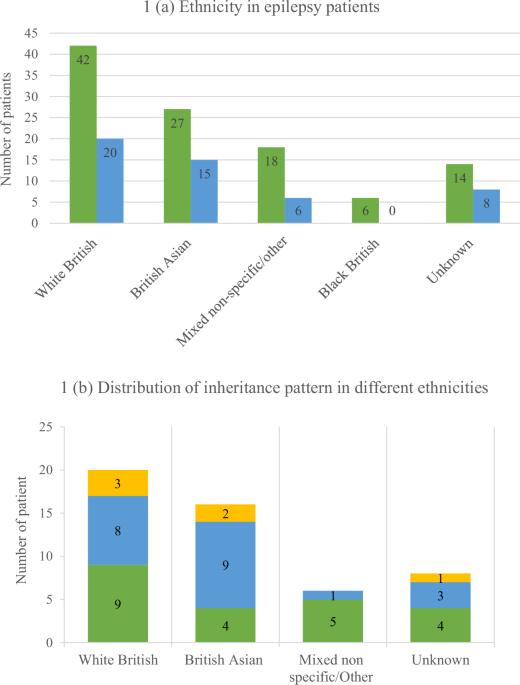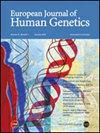快速基因组检测对重症癫痫患儿急性不适临床结果的影响
IF 4.6
2区 生物学
Q2 BIOCHEMISTRY & MOLECULAR BIOLOGY
引用次数: 0
摘要
约30%的癫痫患者对标准抗癫痫治疗仍无反应。越来越多的证据表明,遗传性癫痫可能对有针对性的治疗有更好的反应。在这项研究中,我们因此评估快速基因检测对严重癫痫患儿的治疗益处。方法:系统收集英国两家大型儿科/神经遗传学中心(伯明翰/牛津)进行快速全外显子组测序的癫痫患者的临床数据,为期3年(2019-2022年),并在诊断后12个月进行随访。研究了患者的人口统计学特征、诊断率、基因功能管理和癫痫发作组(仅SZ发作或合并SZ发作)。结果:在106例符合条件的患者中,检测年龄从0岁到16岁不等,中位为7个月。得不到充分服务的族裔群体,例如英国亚裔和英国黑人,都有很好的代表。49例患者共鉴定出39个基因,总体诊断率为46%,SZ+组进一步提高到51%(31/61)。发现的20%的基因影响离子通道,患者更有可能出现早期(结论:这项研究表明,快速基因检测对癫痫患者的诊断率高,治疗效果显著。基因功能类别是管理改变的统计显著预测因子。本文章由计算机程序翻译,如有差异,请以英文原文为准。

Impact of rapid genomic testing on clinical outcomes of acutely unwell children presenting with severe epilepsy
About 30% of epilepsy patients remain unresponsive to standard antiseizure treatment. Increasing evidence suggests that genetic epilepsies may respond better to targeted management. In this study, we therefore evaluate the therapeutic benefits of rapid genetic testing in children with severe epilepsy. Methods: the clinical data of patients with epilepsy referred for rapid whole-exome sequencing were systematically collected at two large paediatric/neurogenetic centres (Birmingham/Oxford) in the United Kingdom over 3 years (2019–2022), with follow-up at 12 months post-diagnosis. The demographics, diagnostic yield, management by gene function and seizure group (SZ-seizures only or SZ+ seizures with co-morbidities) were explored. Results: among the 106 eligible patients, the age at testing ranged from 0 to 16 years with a median of 7 months. Underserved ethnic groups, e.g., British Asians and Black British, were well-represented. Thirty-nine genes affecting 49 patients were identified, giving an overall diagnostic yield of 46%, which was further enhanced to 51% (31/61) in the SZ+ group. Twenty percent of genes identified affect ion channels and patients were more likely to present early (<6 months old) and respond to a gene-directed treatment (p = 0.004483). Seizures secondary to metabolic disorders responded to bespoke therapy. A fifth (22/106) of tested patients and 45% (22/49) of those diagnosed had their management impacted. At the 12-month follow-up, 9/15 (60%) patients remained seizure-free following gene-targeted management. Conclusion: this study demonstrates high diagnostic yield and significant therapeutic benefit from rapid genetic testing in patients with epilepsy. The gene function categories were statistically significant predictors of management change.
求助全文
通过发布文献求助,成功后即可免费获取论文全文。
去求助
来源期刊

European Journal of Human Genetics
生物-生化与分子生物学
CiteScore
9.90
自引率
5.80%
发文量
216
审稿时长
2 months
期刊介绍:
The European Journal of Human Genetics is the official journal of the European Society of Human Genetics, publishing high-quality, original research papers, short reports and reviews in the rapidly expanding field of human genetics and genomics. It covers molecular, clinical and cytogenetics, interfacing between advanced biomedical research and the clinician, and bridging the great diversity of facilities, resources and viewpoints in the genetics community.
Key areas include:
-Monogenic and multifactorial disorders
-Development and malformation
-Hereditary cancer
-Medical Genomics
-Gene mapping and functional studies
-Genotype-phenotype correlations
-Genetic variation and genome diversity
-Statistical and computational genetics
-Bioinformatics
-Advances in diagnostics
-Therapy and prevention
-Animal models
-Genetic services
-Community genetics
 求助内容:
求助内容: 应助结果提醒方式:
应助结果提醒方式:


